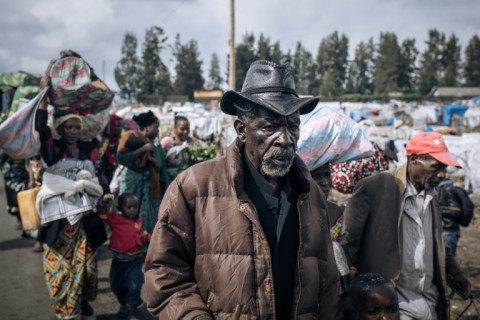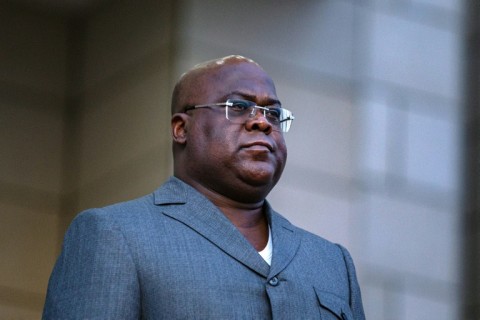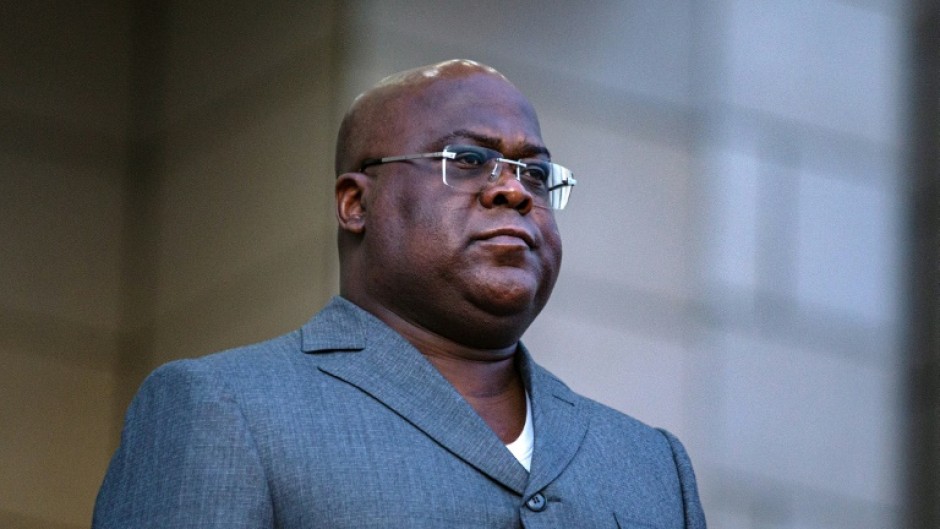
KINSHASA - Villagers have described being ordered to bury bodies in mass graves after a rebel "massacre" in the DR Congo's volatile east, which the government says left more than 100 civilians dead.
"We put three or six people in the same pit," Kishishe resident Rukundo told AFP, saying rebels forced him to bury the dead.
Another villager, Mukiza, said he saw "six mass graves".
For their safety AFP has changed the names of the residents.
All said the Mai-Mai militia arrived in the village on Tuesday and confronted the M23, a predominantly Congolese Tutsi rebel group that has taken over large parts of Rutshuru territory, north of provincial capital Goma, in recent months.
A truce was in place at the time between the M23 and Congolese forces, who had been locked in a months-long conflict.
But Mai-Mai militias supported by FDLR Hutu rebels continued fighting to block the M23's advance towards the neighbouring territory of Masisi.
"Having failed to take the village, the Mai-Mai fled," said Mukiza. The M23 rebels then "started to kill everything they saw", equating the inhabitants with the militiamen they had just fought.
'Rebels were watching us'

At a council of ministers meeting on Friday, Congolese President Felix Tshisekedi "condemned in the strongest terms the massacre of more than 100 compatriots in Kishishe", government spokesman Patrick Muyaya said.
The M23 hit back, saying the allegations were "baseless" and denying targeting civilians in the village around 70 kilometres (40 miles) north of Goma.
It is hard to independently verify the toll given the lack of access to the rebel-controlled area.
A medical source who asked to remain anonymous told AFP that 117 deaths had been recorded.
"The rebels themselves buried the victims on Tuesday and Wednesday, saying they were Mai-Mai," the source said.
Rukundo said the M23 gathered men in the afternoon and ordered them to bury the dead, with many women saying the rebels had killed their husbands rather than the Mai-Mai.
"Before nightfall on Tuesday, 17 bodies were buried. We buried each one where they had been killed," said Rukundo. "The rebels were watching us. All these people were men and young people."
'Shock'
Speaking from a hospital bed in the neighbouring town of Bambo, Mugenzi spoke of being in "shock".
"I was wounded in the head on that day by shrapnel from a bomb that the M23 launched," he said, recounting seeing "several" bodies of members of the Adventist church.
Mugenzi said two civilians were forced out of their home by the rebels, who broke down the door and shot them outside.
"Towards the evening, when calm had returned, a resident who was going to fetch water picked me up and took me to the hospital," he added.
A local lawmaker from Rutshuru, speaking on condition of anonymity, also put the number of dead at around one hundred.
"In the village, there were Mai-Mai, FDLR, the M23, it's difficult to know who carried out the killings," he said.
The politician believes the M23 may have indiscriminately killed civilians but also condemned the Mai-Mai for "bursting into a residential area".
A local civil society representative said sources told him a further eight villagers were killed on Tuesday in nearby Kazaraho as they harvested beans.

